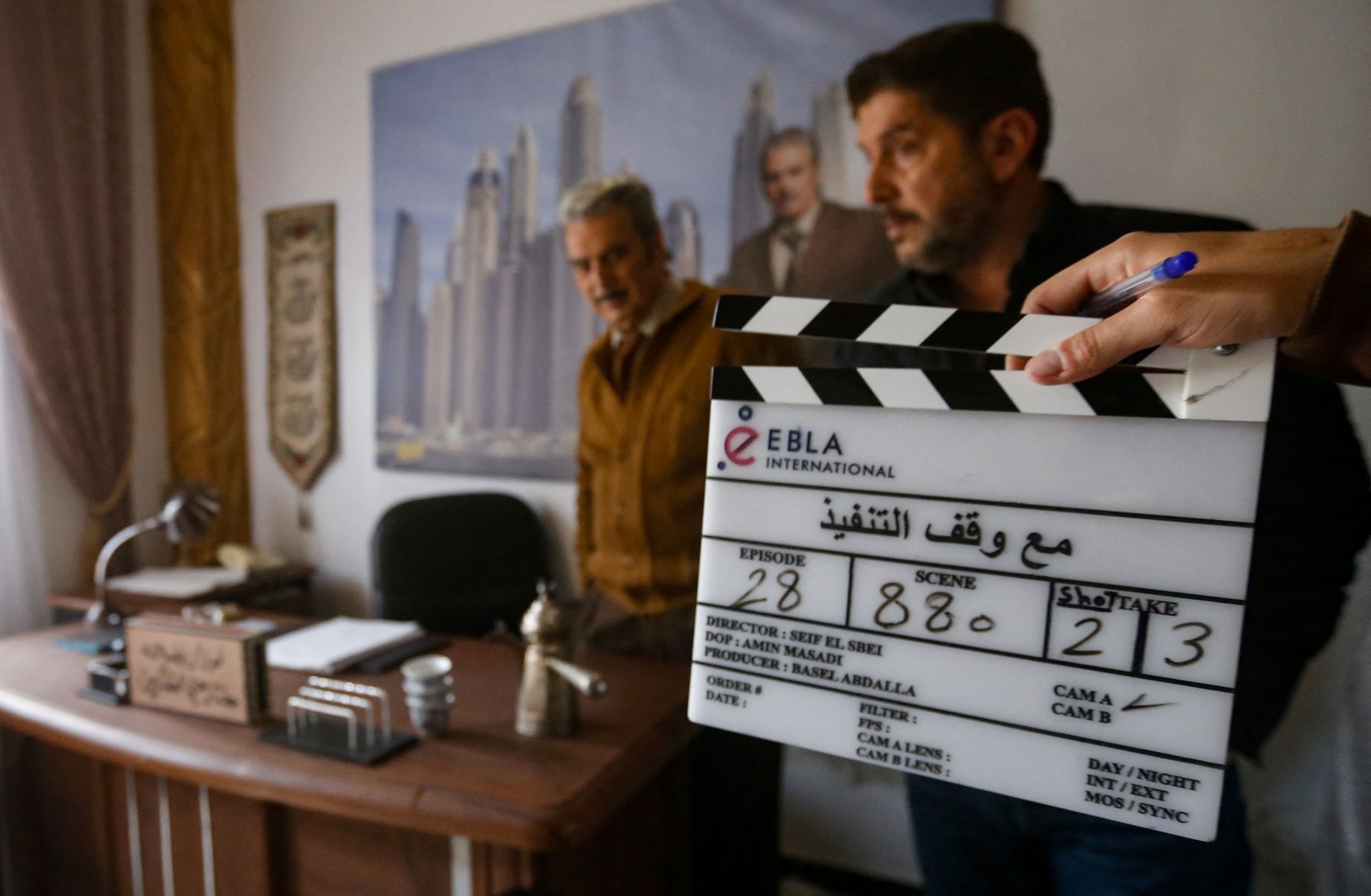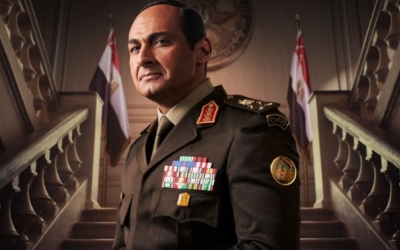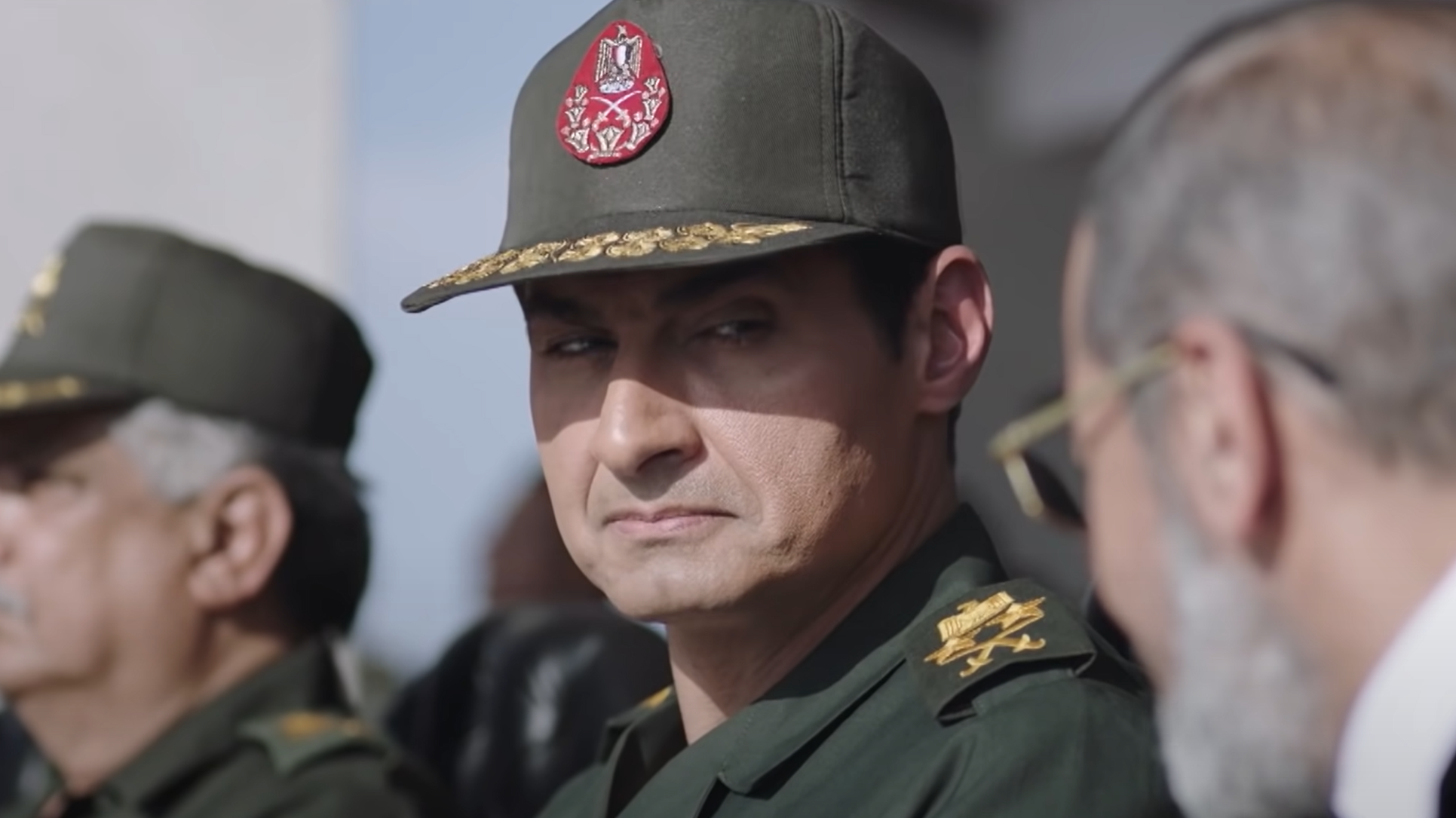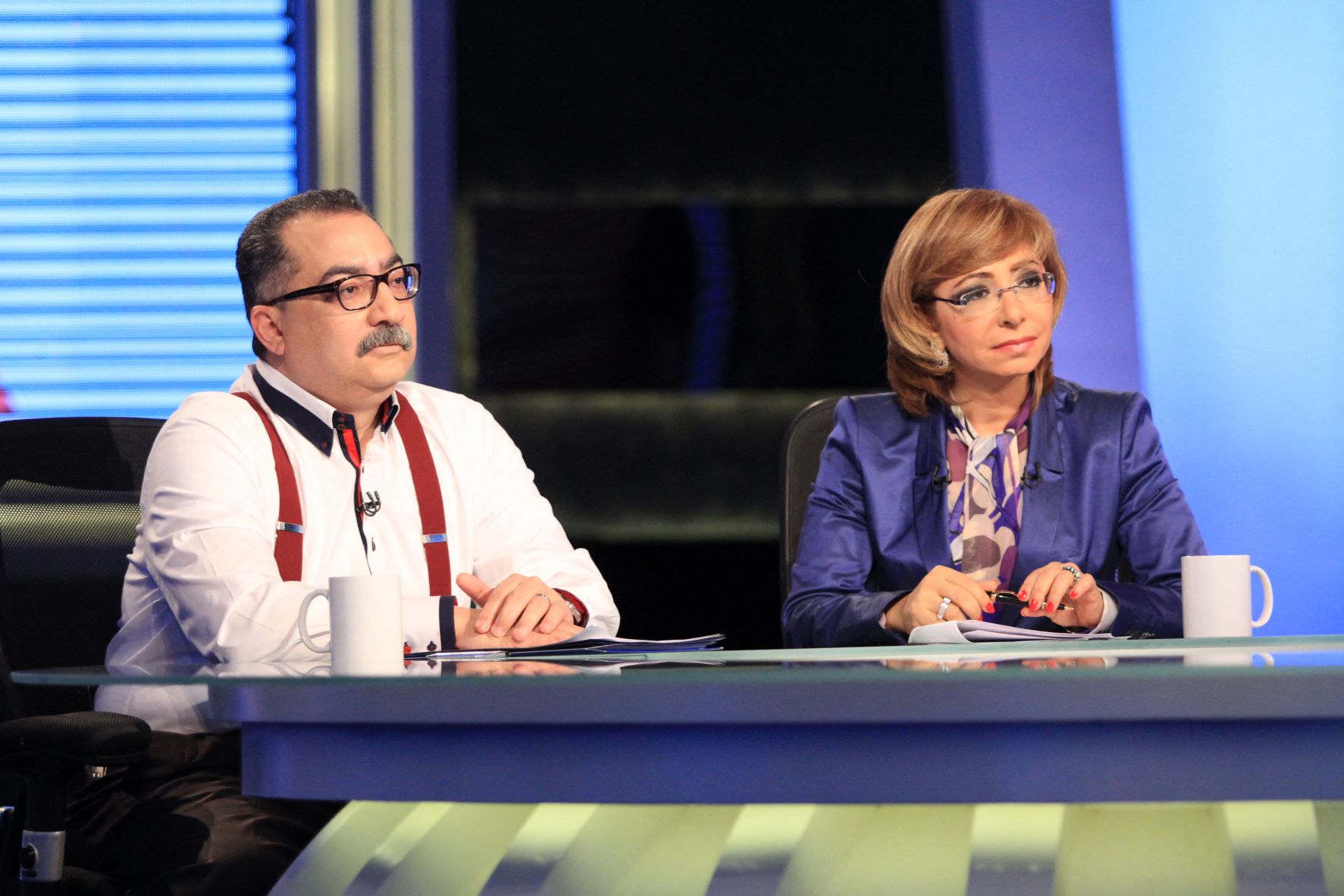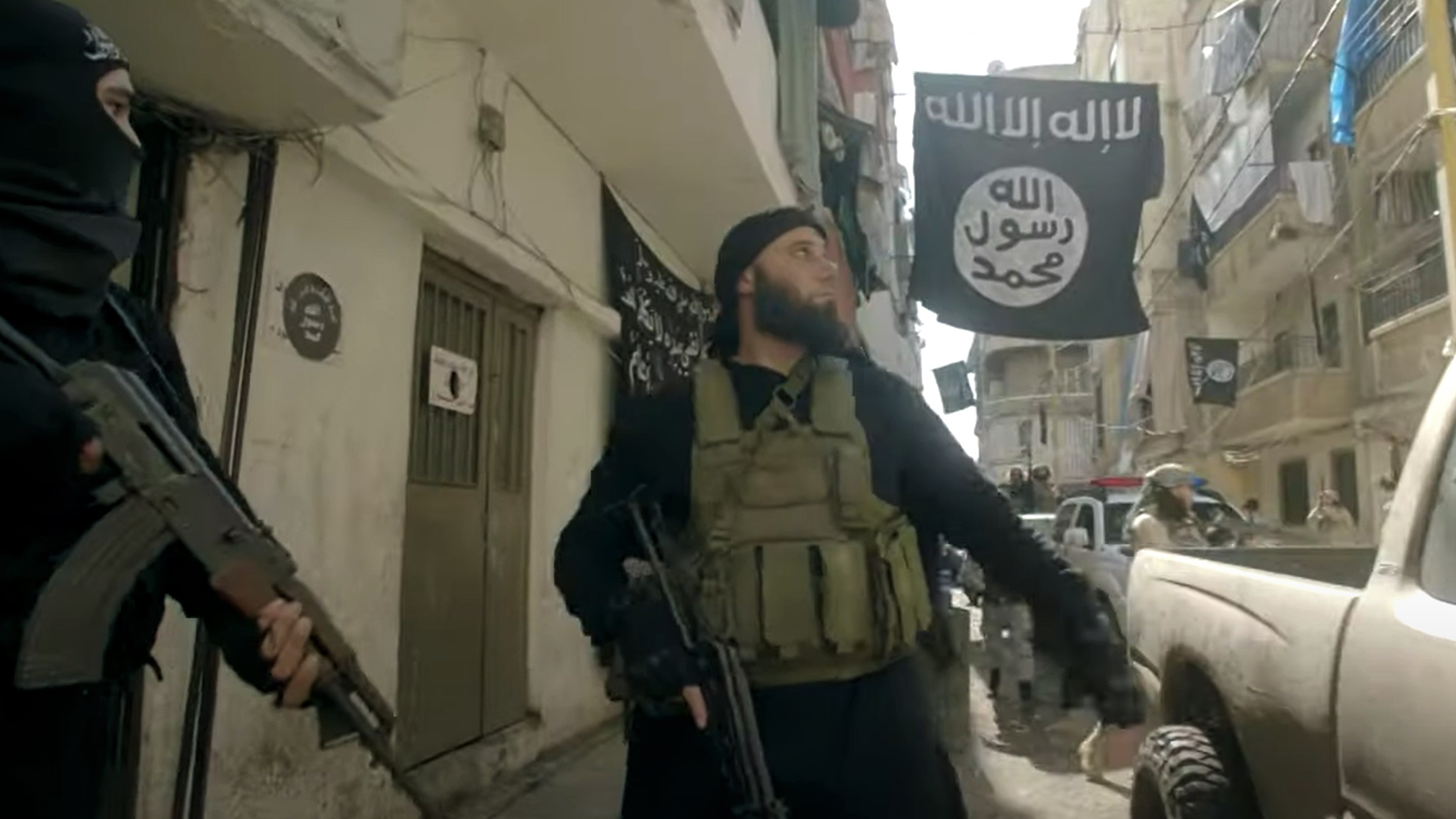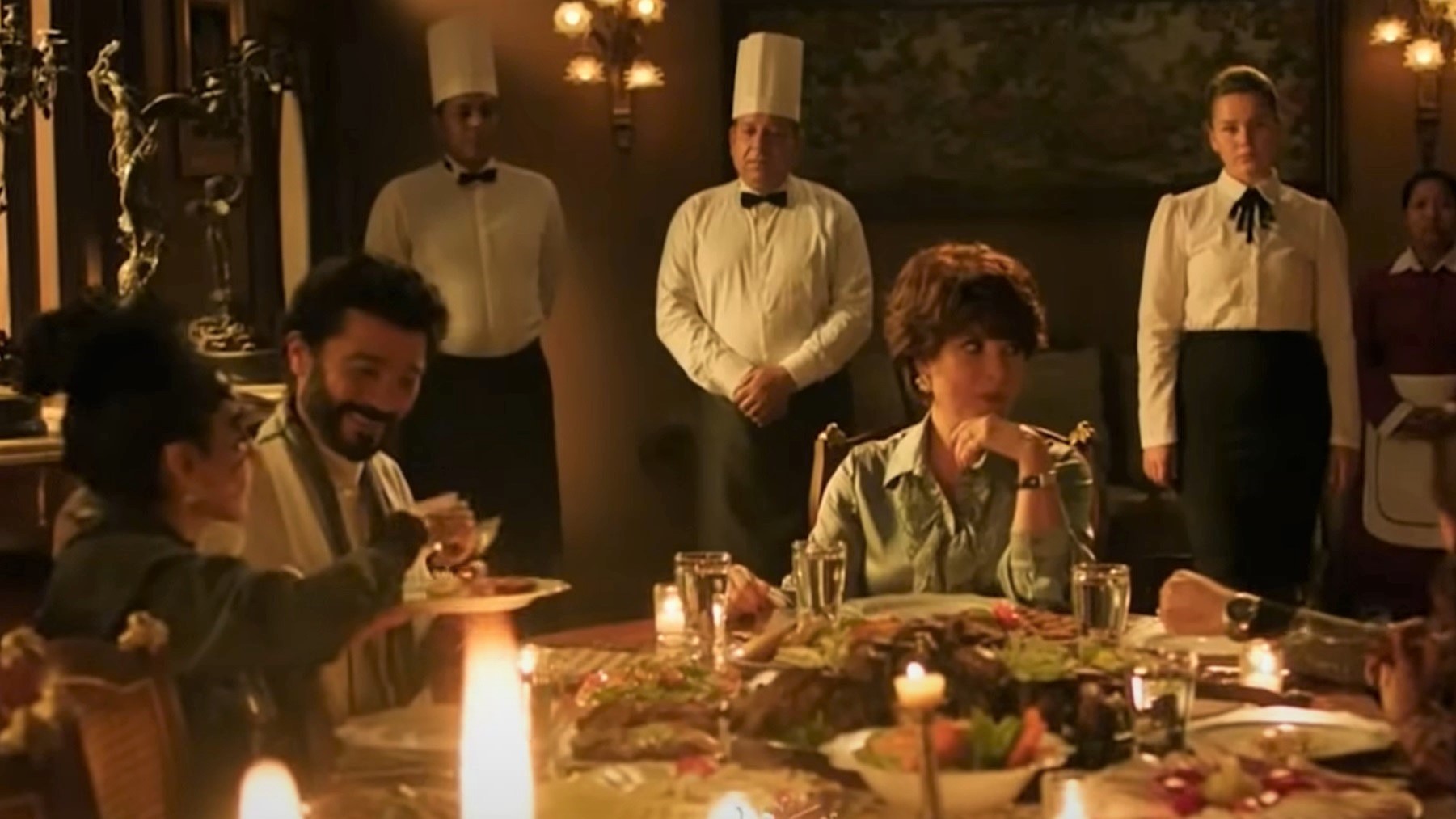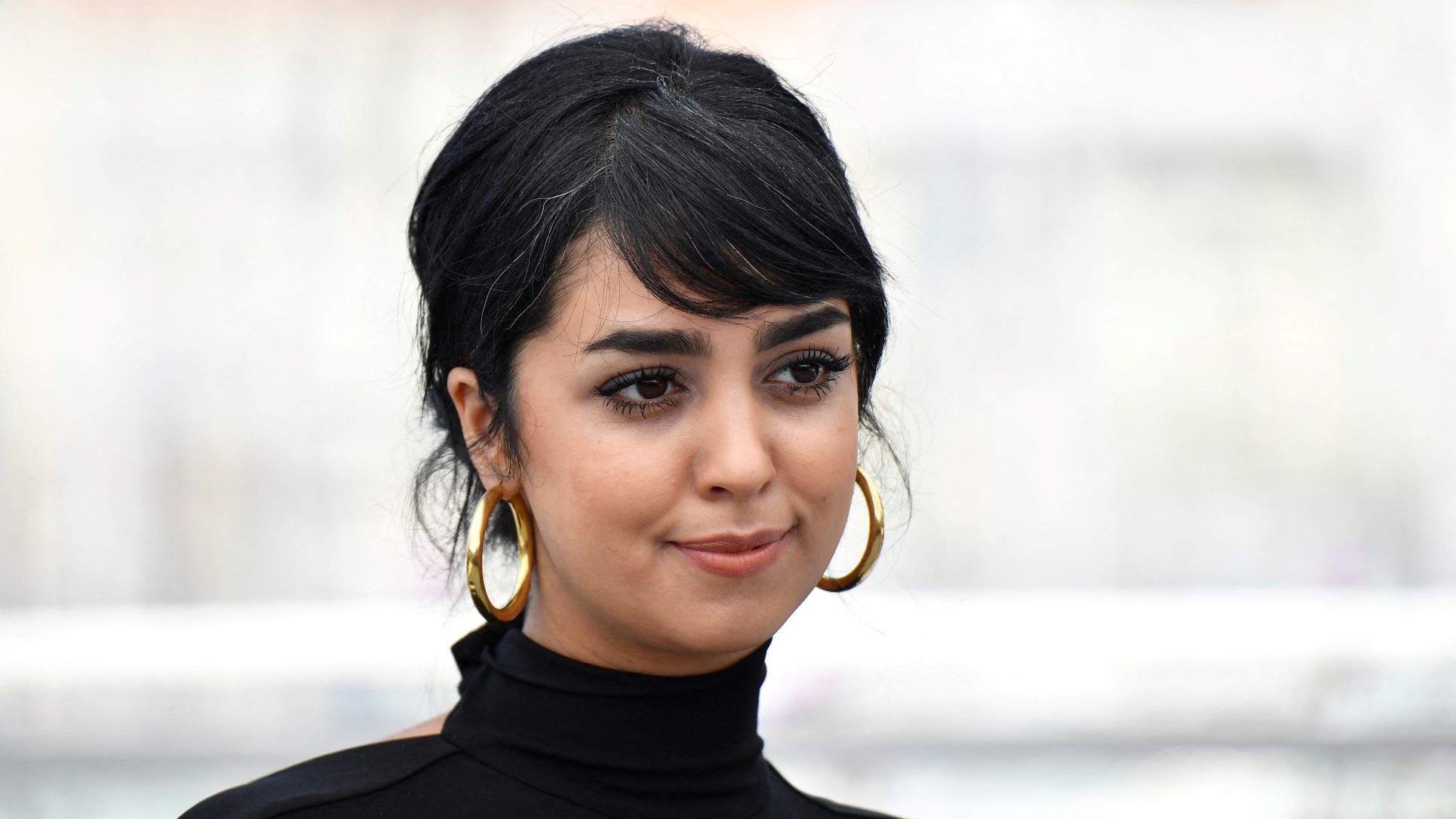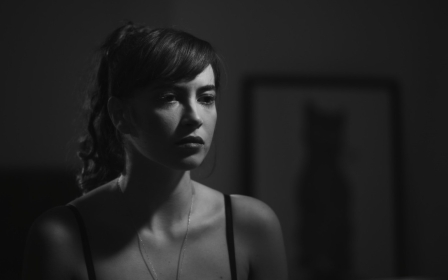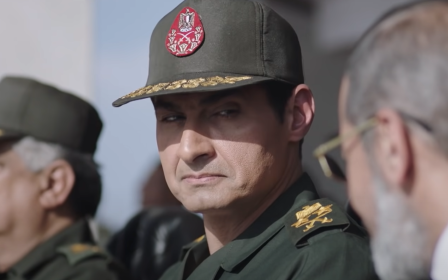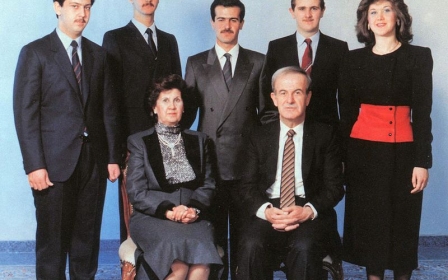Six things we learned from Arab TV shows this Ramadan
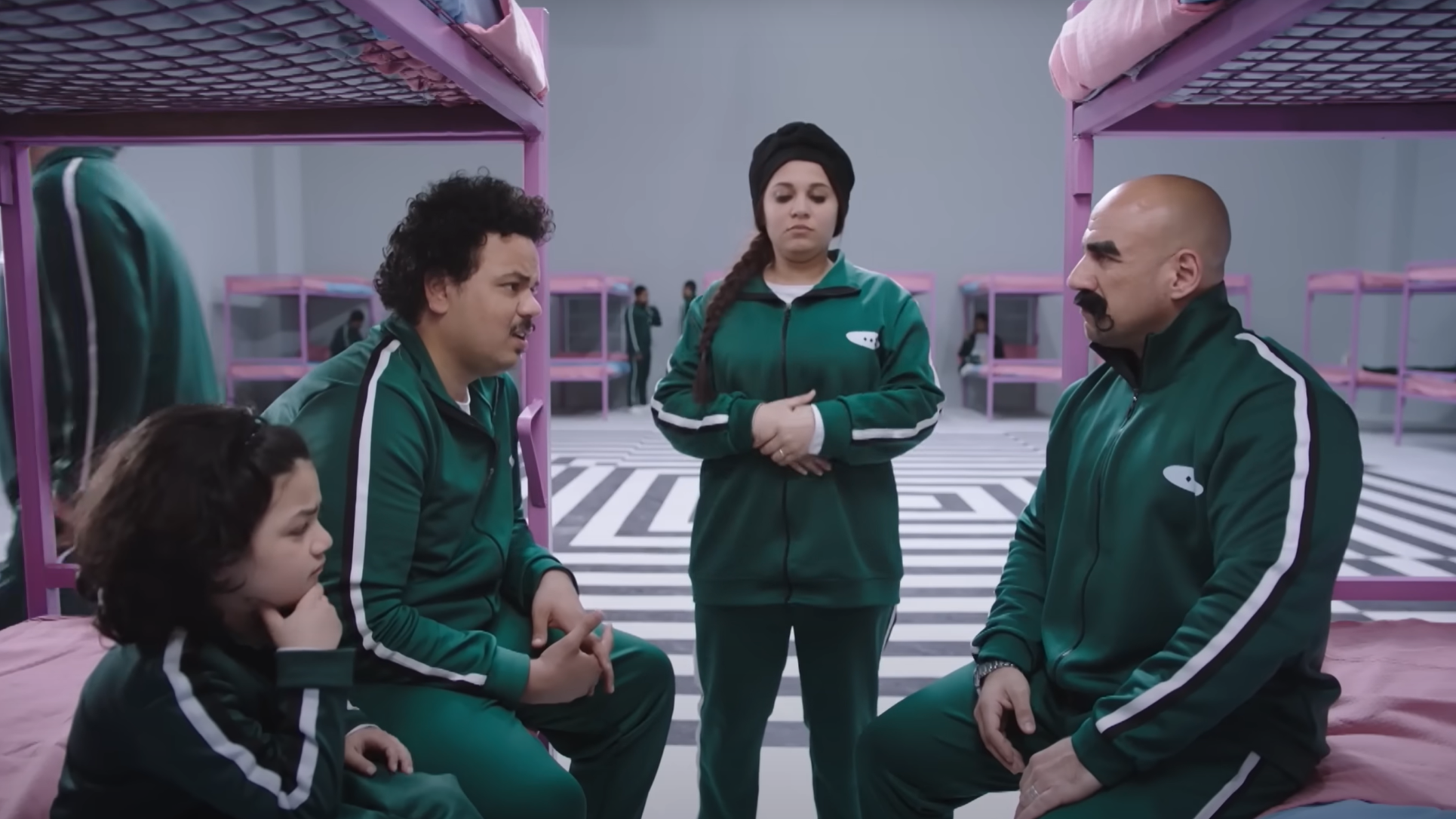
Another year, another underwhelming Ramadan TV season. After last year’s disappointing roster and intense competition from streaming services, producers were expected to up their game. Alas, this was not the case.
While there were no outright disasters like last year’s Nasl Al Aghrab (Outsider Bloodline) or Kol Ma Nefterk (All That We Separated) , there were no masterworks either.
New MEE newsletter: Jerusalem Dispatch
Sign up to get the latest insights and analysis on Israel-Palestine, alongside Turkey Unpacked and other MEE newsletters
With tired plots, toothless politics and a lack of vitality, Ramadan 2022 was business as usual. Marred by a fear of censorship, creatives were working within confined parameters.
The offerings ranged from the sub-standard, such as Donia Tania (Another World) and Dayman Amer (Always Amer), to the unwatchable Rania and Sakina and Pablo, to name but a few.
The 30-episode format - one for each day of Ramadan - remains a major hindrance for those forced to write, shoot and edit the equivalent of two American seasons in less than a year. As a result, shows suffer from fluctuating tempos, lop-sided writing, and discernable clumsiness.
Saving graces came in the form of outstanding individual performances, a cluster of feminist dramas and promising originals from the Maghreb, alongside one uproarious comedy that captured the attention of the region.
Nevertheless Egyptian drama is still the unrivalled king. Even with such a middling line up, Egyptian series remain the most popular, and arguably the most accomplished in the Middle East.
Egyptian productions manage not only to attract a large and diverse audience but also to secure the most advertising money.
Talk of Netflix’s dominance over the Arab TV landscape has again proven to be unfounded and premature, especially in light of its recent drop in subscribers.
'Commercial demands influence what is shown, be it sensationalism, violence or sex'
While Netflix and US shows have left a stamp on the aesthetics, narratives and darkening tone of the region’s dramas, Ramadan 2022 remained a distinctively Arab affair.
The lineup of wayward family melodramas, folk stories and scorching feminist works harkens to the heyday of 90s serials, albeit with improved production values and aesthetics.
By tapping into the 90s template, Ramadan TV producers have shown a heightened awareness of Arab cultural heritage - a sensibility Netflix still lacks.
The artistic quality of the shows is a different issue, however, and there was nothing this year that matched the sheer brilliance of 2020’s With 100 Faces or the transfixing trashiness of El Brince.
With intensifying censorship, both political and societal, the chances of having aesthetically and thematically daring works like Mawga Hara (Heat Wave) or Afrah al-Qubba (The Wedding Song) in Ramadan any time soon seems remote.
A key difference between the post-Arab Spring Ramadan TV and the 90s is the internet.
The blaring noise of social media, influence of conservative pressure groups and mounting scrutiny of television across the region has seen every show becoming liable to censure.
Examples were bountiful this season: Egypt’s Faten Amal Harby for challenging the authority of Al-Azhar; Tunisia’s Bara’a (Innocence) for its advocation of polygamy; and Algeria’s Hob el-Melook (The Love of the Kings) for its provocative sexual content that many deemed inappropriate given the spiritual nature of the month.
The last of these encapsulates the oxymoronic nature of the way Ramadan is observed today: an intrinsically religious month that, like Christmas, has been transformed into a festival of consumerism defined by excessive spending and dominated by advertising money. Commercial demands influence what is shown, be it sensationalism, violence or sex.
And with that, here are six more observations from this year’s Ramadan TV season.
1. State propaganda remains alive
Most international coverage of Ramadan TV in 2022 focused on Al-Ikhtiyar (The Choice), the popular propaganda series produced directly by the Sisi regime.
Having chronicled the heroics of the army and the police in previous seasons, producers upped their game with part three, tackling the Muslim Brotherhood’s rise to power in 2012 and the subsequent 2013 coup led by Sisi, then defence minister.
Sisi serves as a primary character in the drama and is predictably depicted as a one-dimensional valiant idol whose singular raison d'etre is saving Egypt from the Brotherhood’s malicious plots.
Following in the footsteps of its predecessors, The Choice 3 craftily combines drama with documentary footage - a ploy to cover the proceedings with a veneer of authenticity. A significant addition to the new season were apparently leaked recordings of Brotherhood meetings.
In some cases, the recordings had a reverse effect, proving for instance that imprisoned ex-presidential candidate Abdel Moneim Aboul Fotouh was at odds with the Brotherhood and, to the surprise of many, was in fact backing the military.
At the end though, the impression drawn of the Brotherhood leaders through the leaks is more complex than the oversimplified fictional drama presents.
Mohamed Morsi, Khairat al-Shater and Mohamed Badie ultimately come off as a band of outsiders whose chief priority is self-preservation rather than the long-believed power grab. They’re conceited, infinitely paranoid, and disdainful of the secular liberal opposition.
The army and police, on the other hand, are selfless, flawless men of nobility with no desire to rule.
Dramatically speaking, it is infantile stuff, unintentionally raising difficult questions about the liberal opposition, whose pushback against the Brotherhood was instrumental in Morsi’s fall. That same opposition is now split between exile and imprisonment.
Coupled with another series, the disposable espionage thriller Al-A’edoun (The Returned), state propaganda remains a staple in Ramadan.
But as the popularity of the current regime continues to wane due to the cost of living, the desired impact of such propaganda may also be declining.
Simplistic tales of heroes and villains are too cartoonish to believe except among Sisi’s upper middle-class base, which still salivates over thinly-drawn yarns that reaffirm their convictions in the face of economic calamity.
2. A riotous comedy stole the season
A long slump in Ramadan comedies finally came to an end with a collection of solid offerings giving new life to the genre.
In the high concept Maktoub Alia (Written on Me), starring Akram Hosny, a man is forced to follow the instructions inexplicably appearing on his arm every morning. Meanwhile Ahlam Saeeda (Sweet Dreams) focused on three middle-aged women struggling with anxiety, love and family dysfunction.
The surprise triumph of the season was El Kabeer Awi 6 (The Grand Kabeer), the latest instalment of the beloved Egyptian franchise. Having lost steam with parts four and five, no one expected El Kabeer to make a thunderous return to form. But it did, resulting in the show’s best outing so far and the sole perfect Arab series of the year.
There’s little plot to El Kabeer 6; creator and star Ahmed Mekky and his team relied instead on the interplay between the idiosyncratic characters populating the fictional village of Al Mazareeta to deliver the goods.
Several elements elevated the sequel to the top of the Ramadan watchlist: sharp writing, inventive use of international and local pop culture references (a distinctive asset of Mekky’s comedy) and the introduction of newcomer Rahma Ahmed, a comedic firecracker who gave the show new life.
Highlights included a hilarious wedding episode featuring Marbooha, a walking disaster played by Ahmed, and Mekky’s patriarchal but soft-hearted mayor El Kabeer.
The “Al Mazeerta International Film Fest” ends explosively with a parody of Will Smith’s Oscars slap; a scene that summarises the shows irreverent, endearing and utterly irresistible tone.
Mekky’s brand of family comedy is apolitical, and El Kabeer is more often a parody than a biting satire. Nevertheless, the show's best moments come when it deviates from the former and veers towards the latter: its brazen mockery of social media influencers; its denunciation of American cultural hegemony; and, most shrewdly, its mockery of the country’s celebrity-addled film festival scene.
Mekky’s El Kabeer 6 is a riot that gave viewers much-needed relief and distraction during these bleak times.
3. Social dramas left a tangible impact
In spite of severe censorship, a number of Egyptian serials managed to tackle the current social reality of the country without offending or blaming the regime.
Laila Elwi and Mostafa Shaban touched upon the evergreen problems of education in Donia Tania and Dayman Amer respectively; while Inheraf (Transgression) discussed a haphazard host of social crimes: from poverty-induced murder to bullying and sextortion.
The one series that made headlines was Faten Amal Harby, a slice of miserabilism charting the struggle of a lower middle-class wife (Nelly Karim) to get a divorce from her abusive husband (Sherif Salama) and obtain custody of her young daughter.
Often coming off as a lecture by its notorious writer Ibrahim Issa, Faten is unashamedly didactic and heavily influenced by its creator’s anti-clericalism.
Issa’s most recent controversy centred around his dubbing the Isra and Miraj a “total work of fiction.”
His latest series often feels like a galaxy of the various ills women with no privilege are subjected to in Egypt. It is essentially an exhaustive and exhausting railing against Egypt’s unjust family laws and the complicity of Al-Azhar in denying women their rights.
Yet despite its lack of subtlety, Faten is an important work that undeniably hit a chord with society at large.
Its directness cannot appeal to connoisseurs of good art but is perhaps a more fitting approach to challenge laws.
4. Prestige shows tread on familiar ground
Equally serious-minded and no less heavy were a number of prestige productions written, directed and performed by some of the biggest talents in the region. Chief among them was Kamla Abou Zekry’s Betloo’ el-Rooh (At Last), starring International Emmy nominee Menna Shalabi.
The story follows a middle-class wife who tries to flee the Islamic State (IS) after being tricked by her husband into joining him in the group's former capital Raqqa.
The second was Geziret Ghamam (Ghamam's Island), an allegorical fable set on an island and revolving around a power struggle between an ultra-religious faction, an authoritarian mayor and an extraneous band of gypsies searching for hidden treasure.
While the two contain some fine performances, the writing is indisputably penetrating and the drama gripping, they offer little to no new insights into the subjects at hand.
The Islamic State narrative has been milked to death, and Betloo’ el-Rooh does not show anything we had not seen before. All predictable archetypes associated with the group are there: lost middle-class men searching for meaning; emasculated youths finding the power they’re hungry for; and the guileless women caught in the bedlam of it all.
Betloo' el-Rooh ultimately is a story of female emancipation: a woman’s fight for freedom against the merchants of death. The ending is imbued with liberating catharsis, but the entire proceeding felt derivative and lacked topicality.
Ghamam is a complex and far more meditative affair, typified by writer Abdel-Rahim Kamal’s characteristic Sufistic touch. This is an Egyptian story through and through, lasering in on the undying conflict between theocracy, authoritarianism and capitalism with the confused masses torn between them.
Unlike Betloo’ el-Rooh, its characters are less predictable and more layered, with each possessing innate conviction that they’re doing the right thing for themselves and their people.
Kamal believes that evil is fundamentally derived from blind, self-serving rationalisation and unexamined beliefs rather than a pointed desire to incur harm on the uninformed masses.
The show’s religious and political allusions, however, are too on the nose and often preachy, while the central theme of good versus evil frequently feels rudimentary, hampered by the overly specific ideas each character rigidly personifies.
There are moments of sublime storytelling, but in the end, Ghamam's Island fails to become the rich philosophical treatise it promises to be.
5. Light family fares offered understated gratification
Ramadan 2022 saw a welcome return to the lighthearted family dramas that used to be the bread and butter of 90s Arab TV.
Examples included Rageen Ya Hawa (Welcome Back, Love), about an Egyptian immigrant to Europe returning home to claim his inheritance, and the Nadine Khan-directed Meen Aal (Who Said?) about a young man striving for a life free of his parents’ dictates.
There’s a languid, breezy feel to each of these serials that captures the leisured pace of life in Egypt, while their characters - all at various crossroads - project the protracted state of influx the country has endured since 2011.
But because poverty has become a taboo, restricted to the working class fantasy of Tooba and Pablo, class does not figure in the fabric of these stories.
Aspects of the human drama presented in these stories are relevant and real, but none dare dig deep into the heart of the actual source of these predicaments.
Between the gated compounds of Meen Aal and touched-up old neighborhoods of Rageen Ya Hawa, the Egypt of the Ramadan series is a prettified, exotic locale, bereft of the pollution, unbearable traffic and destitution found in reality.
6. A breakthrough year for the Maghreb drama
The Maghreb drama has made strides in recent years, especially in Tunisia, home of the crossover hit Harga (Fire).
Its second instalment proved an even bigger success than the first, not deviating from its predecessor’s winning formula; an epic drama documenting the struggles of illegal immigrants.
It does, however, expand its focus with regard to the social and human aspects of the topic, while offering more polished production values.
In Mariam Al Ferjani, who provides one of the most nuanced performances of Ramadan 2022, the show also casts one of the rising stars of Arab film and TV.
Ramadan 2022 marks another landmark year for the region, with Morocco and Algeria also delivering their own adventurous works.
Less accomplished but more inventive was Abdelhamid Bouchnak’s historical satire Kan Yama Kansh 2 (There Was or Wasn't). The new series sees its young protagonist, a leader of a fictional kingdom, lose his power and embark on a journey to restore it when corruption deepens.
Drawing on Algeria’s post-2021 political crisis, Bouchnak’s comedy remains jagged, while his political criticism oscillates between the scattershot and the edifying. Kan Yama Kansh nonetheless remains a novel, freewheeling work distinguished for the kind of barbed political commentary unwitnessed outside of Tunisia.
Algeria also hit a home run with Babour Ellouh, an earnest illegal immigration drama that, nonetheless, suffers from more than a passing resemblance to Harga. Its historical inaccuracies aside, Fath Al Andalus (Conquest of Andalusia), on the Umayyad conquest of Iberia offers the kind of spectacle that demonstrates the potential Morocco’s creatives have to offer.
Opposite in scope and intention to Fath Al-Andalus was Lotfy al-Naheela, Hicham Lasri’s Moroccan cult hit, which debuted online. Comprised of 15 eight-minute episodes centring on the titular deliveryman who aspires to invent a successful app that would bring him fame and fortune, Lotfy is a madcap, over the top comedy teeming with Lasri’s signature manic energy and flamboyant visual flourishes.
Lasri, whose previous films have been shown at Cannes and Berlin, has struggled with a lack of discipline with his recent films and his brand of comedy remains an acquired taste.
But he is still one of the most distinctive voices in Arab culture, a fresh talent who could do wonders to the big-budgeted TV series Morocco needs to rival Egyptian dominance.
Middle East Eye delivers independent and unrivalled coverage and analysis of the Middle East, North Africa and beyond. To learn more about republishing this content and the associated fees, please fill out this form. More about MEE can be found here.


